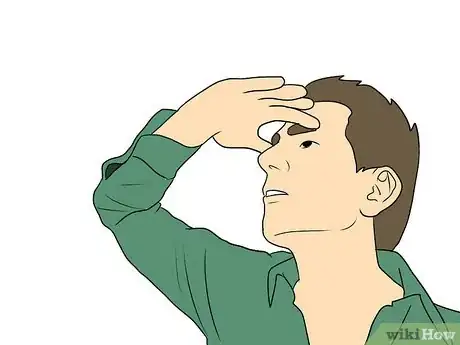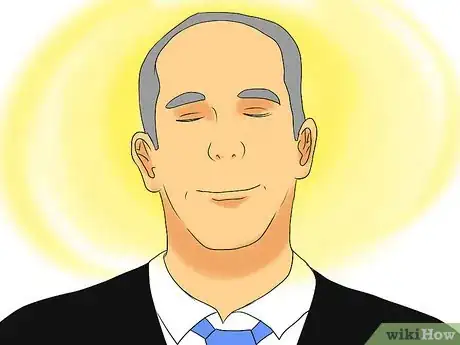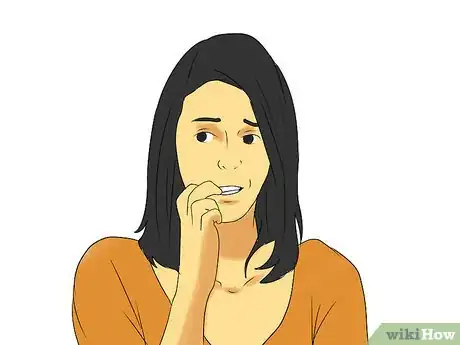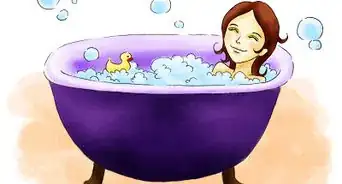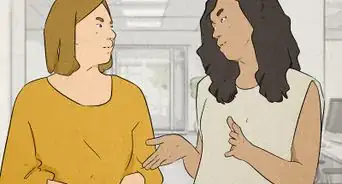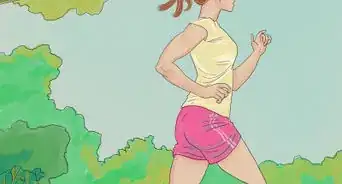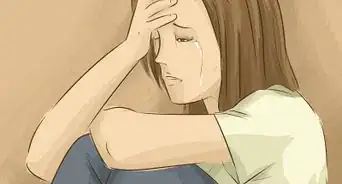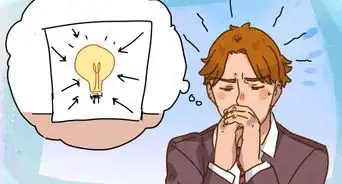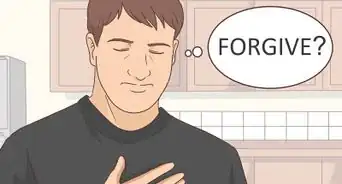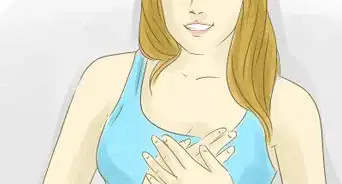X
wikiHow is a “wiki,” similar to Wikipedia, which means that many of our articles are co-written by multiple authors. To create this article, 11 people, some anonymous, worked to edit and improve it over time.
This article has been viewed 54,230 times.
Learn more...
For better or worse, desires drive nearly every aspect of our lives and compose nearly everything that defines us as unique individuals. However, as with all useful tools, there is a right way and a wrong way to handle our desires as they can be the source of virtually limitless happiness or unhappiness. This article explores desire and offers suggestions on how you can improve your own happiness and well-being.
Steps
-
1Find a place in which you can observe and explore your desires. This is important as merely reading about the subject doesn't have as beneficial an effect as watching them as they unfold, and analyzing their effects.
-
2Practice mindfulness. You may practice mindfulness or meditation, or simply put your feet up and relax while watching the mind like an explorer. Set yourself clear guidelines for what you will be doing. It's important not to get to involved with the desire or dream. Just watch them remotely, like you would observe a painting in an art gallery. You can admire them and encounter many different things, but you know you are still in the gallery and not within the painting itself.Advertisement
-
3Explore the extent of the desire. Generally, it’s best to explore it in the moment, but also in relation to time. This exploration is a fascinating life-long journey as it will continue to reveal new facets and variations as you go.
- The purpose of exploring it is to ultimately gain an understanding of it. Remember that you can let go of the desire- don't let it control you. Desires can be so strong that they can become self-destructive as well as detrimental to others around you. They not only lead, but drive every facet of our life.
- The relationship to time is also important as ultimately the desires that control us the most are born of past experiences. If you have a history of stressful experiences, you may want to control your present situation to create a positive outcome or prevent a certain negative outcome.
- We often reach out to third parties in order to help us do this, much of our mental wishes to power symbols and third parties exist not out of piety, but out of desire to create change, or prevent loss.
-
4Explore some of the biological impacts of desire. Generally, desire creates a tension in the brain and the body, which can be mild or intense, in relation to our interaction with the desire. This in a nutshell reflects tension and stress headaches, as well as nausea and the other symptoms we typically experience when we feel stressed, including unhappiness and that common feeling described as "blocked," where it is difficult to focus on other things. Excessive desires overwork the brain (as it keeps on thinking and craving) which leads to mental fatigue
- This can cause unhappiness as we have less energy and more stress-related illnesses. Many desires are very subtle and often influenced by feelings of dissatisfaction and insecurity. For example, you might dream of winning the lottery.
- In other cases we may desire to control others or situations as a way to prevent personal frustration re-occurring.
- Ultimately all our thoughts, fantasies, and mental chatter are generated by our desires. Our emotions are likewise tied to desire; we get angry and frustrated and despair because our desires weren't realized.
-
5Explore the motivation of each desire. Generally desires arise from positive emotions such as generosity, kindness, intelligence, compassion and so on, or negative emotions such as insecurity or neediness, fear, anger & frustration, envy, ill will, greed, ignorance, etc..
- The mind produces desires like the liver produces bile. It is an exercise in futility trying to stop them, simply because that is itself a desire. Often we become afraid of desires, or try to control their expression which only causes more stress to the mind and body. It’s easy to fall into a groove in how we interact with our desires, but this can lead to depression and other problems.
-
6Consider the practical reasons for desires. Without desire, would we see the need to eat, sleep, exercise, be good people, work to pay for our meals, home, and hobbies, or even, on a very subtle level, breathe? Even your ability to watch TV, relax, read, listen to music, sing, etc. is a fruit of desire. Our entire life is basically the expression and reflection of our desires.
- Desires can ultimately be divided into long term and short term, so a spur of the moment desire to go buy something while shopping, as well as reactionary desires, are primarily short term, but may also be connected to long term desires. Long term desires are more lifestyle orientated, such as getting a university education.
- They can also be categorized into functional or intellectual and beneficial or harmful. Since the mind and body would greatly prefer to relax and do nothing, our biological survival depends on actions. Many of our emotions exist for survival, such as fear existing to make us aware of precipices, wild animals, poisonous things and other dangers. Greed for possessions such as extra clothing and shelter from cold weather or extreme heat are inherently connected to our survival.
- This body, in essence, is an investment of much energy and resources, the most efficient piece of software in the hardware of the body, is the concept of I. If we had no concept of self-importance, then we would not be inclined to protect and feed the body that we depend on. Likewise in a society where the idea of ego is muted (this applies both to primitive tribal communities as well as more modern societies), relationships between other people are more important because our survival and well-being is linked to cooperation.
- Whenever confronted by a choice, it is desire that resolves it, using knowledge (be it accurate or inaccurate) as a guide. Without a desire to make the choice and deal with it's consequences, it would remain an unresolved conflict. On the other hand, we often try to avoid making a choice as the outcome would conflict with our existing choices and desires.
- The body can and often does overrule our mental desires. For example, if we want to party all night, we will feel very tired, and if we don't stop to eat, we will feel increasingly hungry and uncomfortable.
- This poses a classic paradox to philosophy and ideologies, as in some cases the individual is praised and philosophies aim on developing the individual to realise their inner goodness and virtue. The alternative view is that the individual is selfish and it is through an enlightened society, or, all beings being equally dependent on each other as a means to change the individual to be a more noble being. Both, in essence are correct and incorrect at the same time, because human beings have both greed and generosity, love and hate, so all humans have both noble and corrupt virtues.
-
7Consider how desires can be used for benefit. Ultimately the lesson is always to be smart about your desires. We can desire to be good people and do grand things, but without skills in dealing with our desires we might not attain our goals. The key to building personal happiness is learning to recognize when your desires have gone too far as well as knowing how to let go of them.
- Sometimes the old metaphors are the best ones. Ancient philosophy tells us to rise above our troubles like the lotus rises above the mud that it grows in.
- To do this a person has to desire to act for their own mental wellbeing, but it can be difficult to prioritize this over other competing desires. It's largely a question of balance. One desire is stronger than the other so our will power is not 100%. Through repeated observation and analysis of our desires and addictions(an extreme effect of desire), we can attain a healthier, more balanced frame of mind.
Advertisement
About This Article
Advertisement

